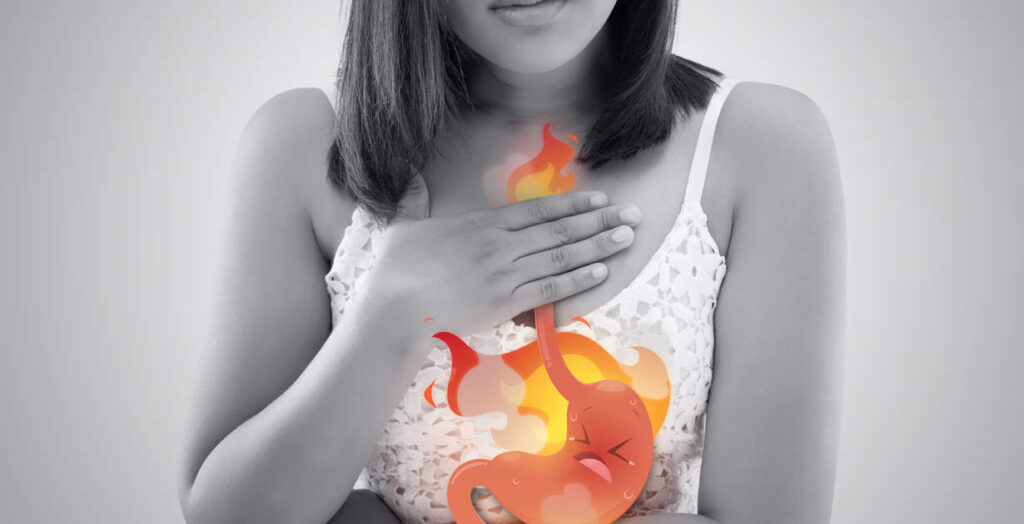Gastro esophageal reflux disease (GERD) is a common digestive disorder that occurs when stomach acid flows back into the esophagus. GERD usually occurs when the valve known as esophageal sphincter that prevents stomach content from flowing back into the esophagus isn’t working effectively.

If you experience mild acid reflux at least twice a week or moderate to severe acid reflux at least once a week you are most likely suffering from gastro esophageal reflux disease.
The most common symptom of GERD is heart burn especially after eating. Other symptoms include belching, nausea, chest pains, chronic cough, regurgitation of food and sour drinks and sensation of a lump in the throat. Some people with GERD may not experience these symptoms.
Over time, reflux of stomach contents into the esophagus damages the inner lining of the esophagus resulting in normal esophagus cells to be replaced by cells known as gland cells, These cells are similar to those that line the stomach and intestines and are more resistance to stomach acid. The lining of the esophagus with gland cells results to a condition known as Barrett’s esophagus.
It is estimated that 15% of all people who experience GERD will develop Barrett’s esophagus.
People with GERD have a higher risk of esophageal cancer compared to those who don’t. Those with Barrett’s esophagus have an even higher risk of esophageal cancer because over time, gland cells in Barrett’s esophagus become abnormal.
Esophageal cancer is the 8th most common cancer and the 6th leading cause of death from cancer globally. Kenya belongs to a high incidence region known as Africa’s Esophageal Cancer Corridor because it is among countries with reported high incidences of esophageal cancer worldwide.
Even though there are many other risk factors of esophageal cancer like tobacco use, excessive alcohol use, unhealthy diets, frequent use of very hot foods and drinks; the risk posed by GERD can’t be overlooked. People who experience any symptom mentioned frequently should seek prompt medical attention. On top of this, they should observe the following to alleviate the symptoms.
- Losing weight
GERD often affect overweight and obese individuals. The excess belly fat common in such individuals puts pressure on the stomach increasing the risk of reflux. Obesity also increases risk of hiatal hernia, a condition that causes flow of acid from the stomach into the esophagus. Weight loss lessens the pressure on the lower esophageal sphincter which prevents stomach acids from leaking through.
- Eat smaller portions
Big portions of food distend the stomach and it takes longer to digest big portions and hence the stomach stays distended longer. The longer the stomach is distended, the more likely that the valve between the stomach and esophagus won’t close properly allowing stomach juices to flow back into the esophagus.
- Take time to eat and to chew your food
Fast eating can lead to overeating and poorly chewed food which increases risk of acid reflux. Slow eating prevents overeating and prevents indigestion by ensuring food is properly chewed and mixed well with saliva which prompts digestion of some foods in the mouth.
- Don’t lie down immediately after a meal
Staying in an upright position after a meal keeps stomach contents where they belong. Eat at least two to three hours before bedtime and avoid laying down after a meal to help gravity keep the acids intact in the stomach.
- Avoid food triggers
The foods you eat affect the amount of acid your stomach produce. Food triggers are different for everyone hence it is important to identify and avoid your food triggers. Common triggers include citrus fruits, caffeinated drinks, tomatoes, alcohol and smoking.
- Avoid high fat foods
Fatty foods delays digestion and emptying of the stomach and can also cause esophageal sphincter to relax allowing stomach acid into the esophagus.
